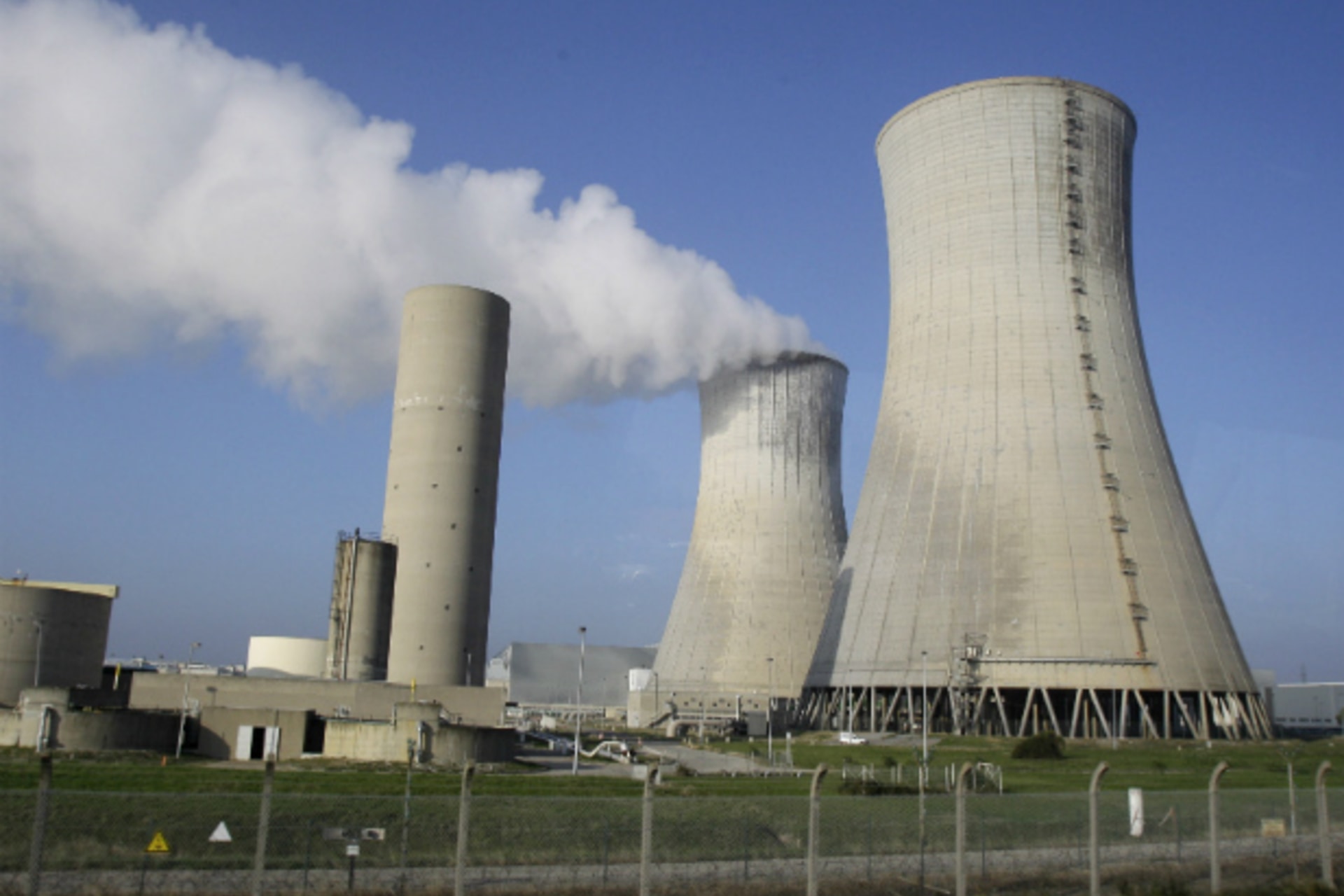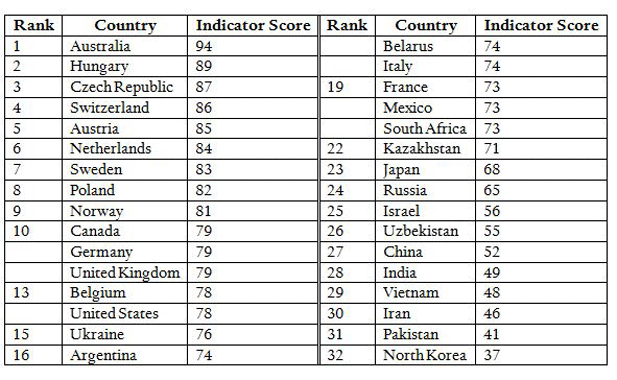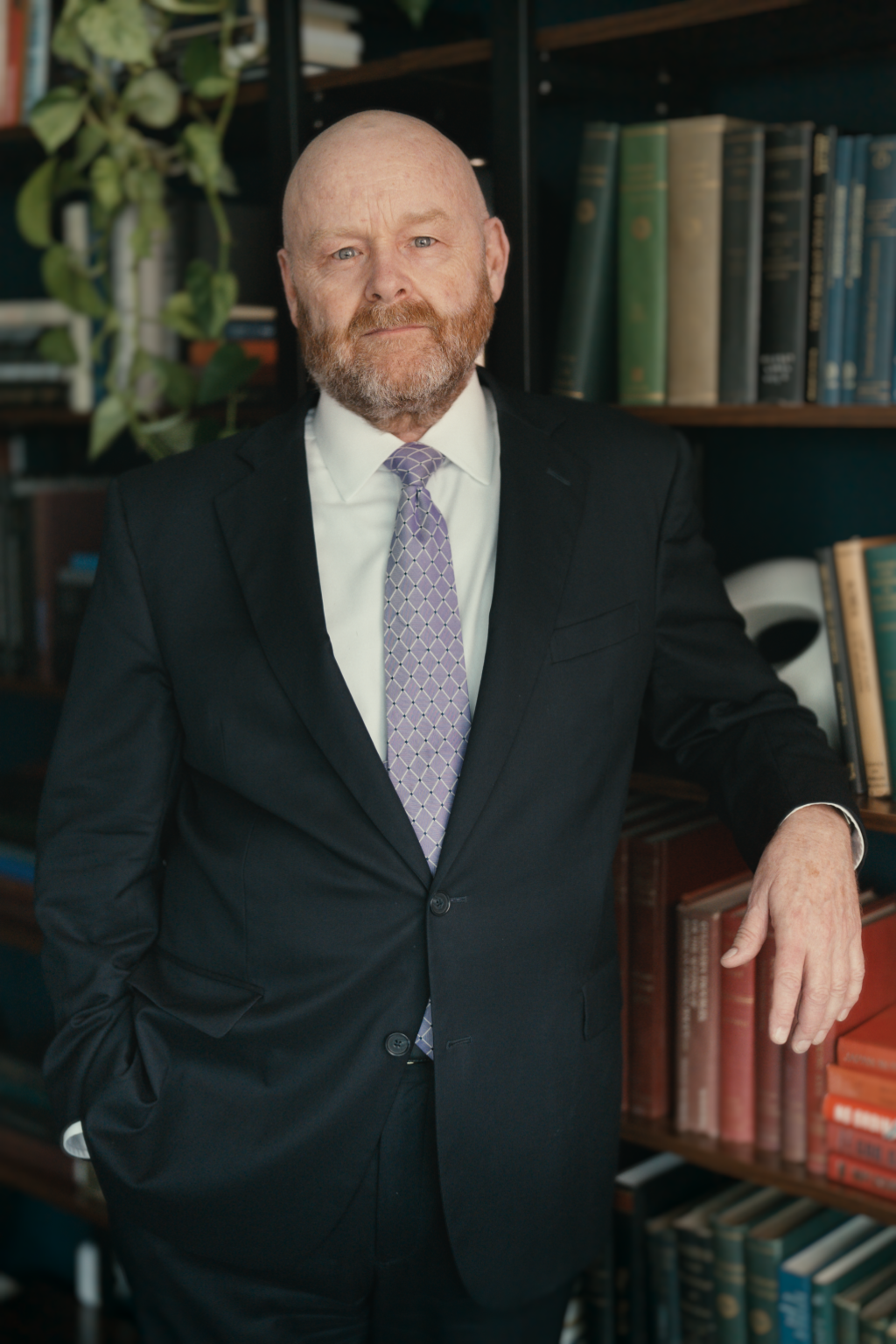How Secure Are Nuclear Sites Worldwide?

By experts and staff
- Published
Experts
![]() By James M. LindsayMary and David Boies Distinguished Senior Fellow in U.S. Foreign Policy
By James M. LindsayMary and David Boies Distinguished Senior Fellow in U.S. Foreign Policy
Nuclear weapons are the most dangerous weapons on the planet. So you would think that they and the fissile material used to make them are under tight control. Perhaps not.
That’s at least the conclusion of a new study conducted by the Nuclear Threat Initiative (NTI) and the Economist Intelligence Unit (EIU). Using open-source data—that is, without relying on secret intelligence—they ranked the thirty-two countries that have at least one kilogram of weapons-useable nuclear materials (plutonium and highly enriched uranium) in terms of how tight their security is. (The study did not look at the security of other kinds of radioactive material that could be used in making so-called radiological or dirty bombs.) NTI and EIU weighed eighteen factors, ranging from physical protections at nuclear sites to broader questions of political stability and corruption, in compiling their rankings.
So how did things shake out? The rankings are in the chart below. Australia, which possesses fissile material but no nuclear weapons, tops the list as the most secure. Pakistan and North Korea, which have both, finish thirty-first and thirty-second. When you look solely at countries that possess nuclear weapons, Britain fared the best, ranking fifth. The United States ranked thirteenth, tied with Belgium.
 Source: NTI Nuclear Materials Security Index.
Source: NTI Nuclear Materials Security Index.
These results should be read much like college football polls. They give a broad sense of relative security of each country’s weapons and materials even as the specific rankings can be debated. Britain probably does have tighter security than North Korea just as Alabama probably had a better football team this year than Nebraska did. Likewise, we can debate whether the United States and Belgium are really “tied” in the same way we can debate whether the Boise State Broncos were as good this year as the Oregon Ducks. And just as it is true that the number one team in the nation can lose on any Saturday (or any Monday night in January), the fact that a country gets a high security ranking doesn’t mean its security measures are foolproof.
So in all, there are no real surprises in the NTI-EIU rankings. As I have noted before, the security of Pakistan’s nuclear arsenal, which now rivals Britain’s in size, scares experts. Ditto North Korea’s nukes.
But I suspect that both NTI and EIU knew that before they started the project. Their hope is that the ranking will draw attention to the problem and get governments to do something. President Obama’s April 2010 Nuclear Security Summit pushed the ball forward a bit, but much more needs to be done. On that front, let’s hope that the news that Pyongyang might be willing to halt its nuclear program in exchange for food aid turns out to be true and not just another diplomatic sleight of hand.
